




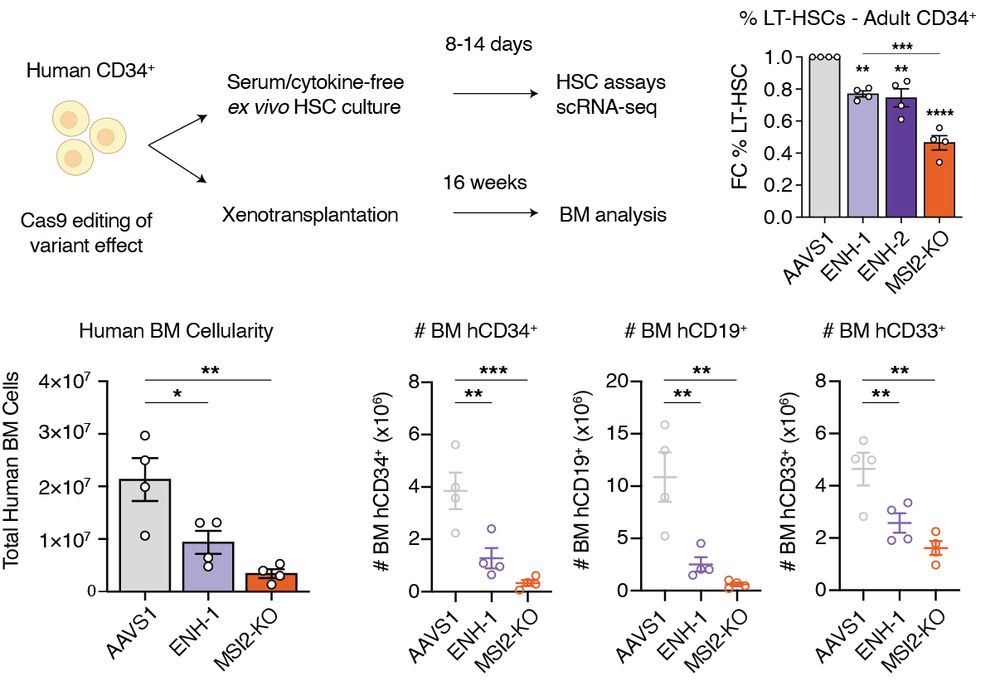
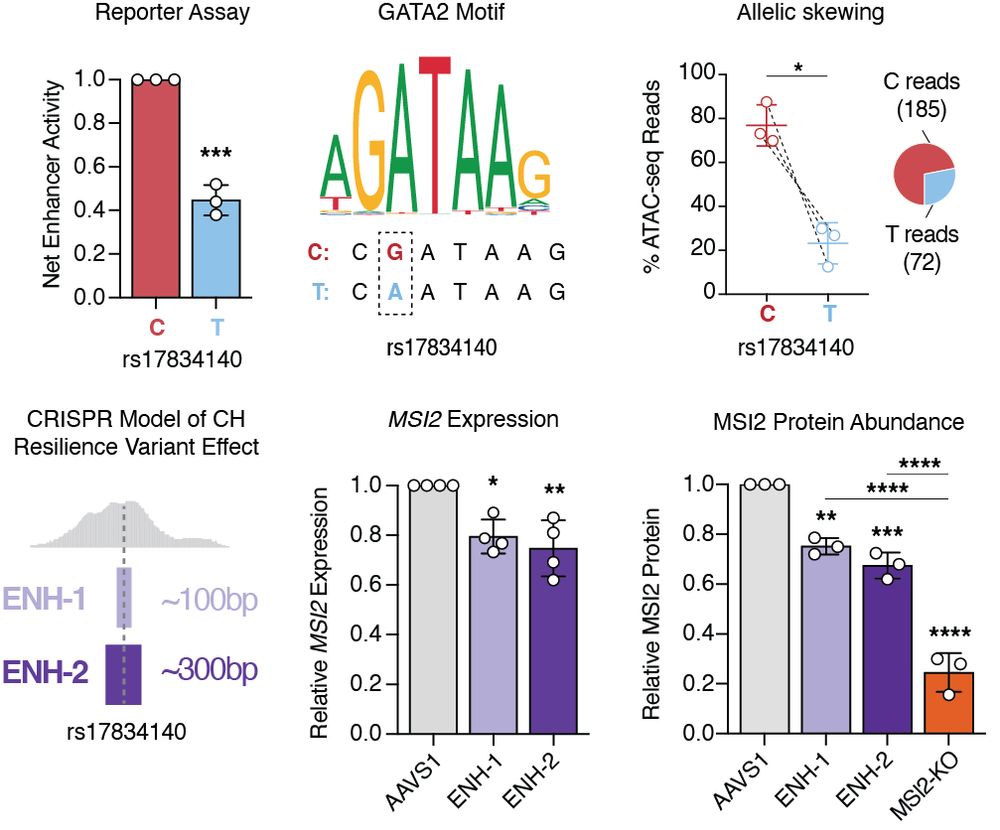
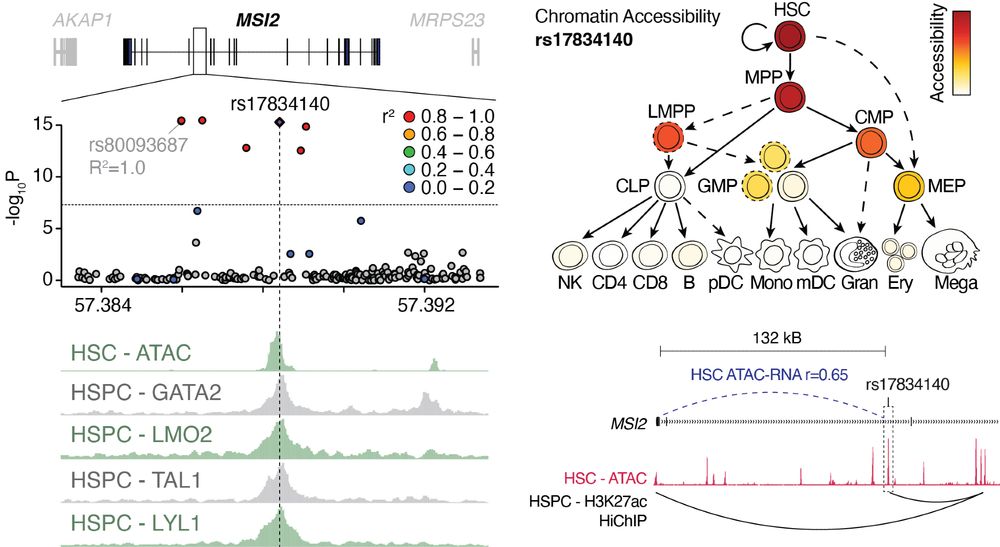
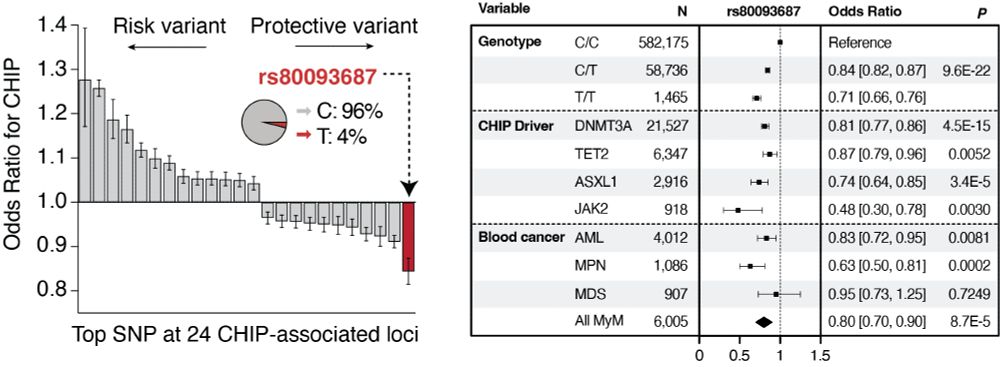
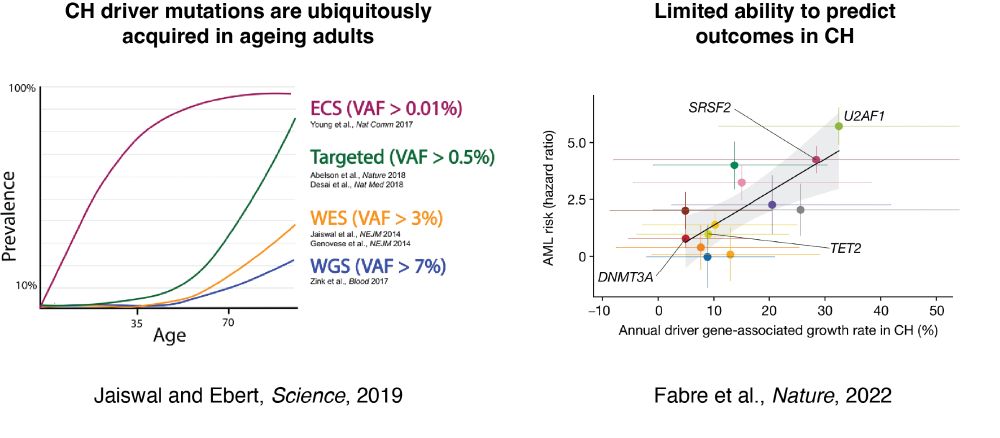

Thrilled to share my work in @bloodgenes.bsky.social lab, describing inherited resilience protecting blood stem cells from clonal hematopoiesis by modifying RNA regulation. 🧵👇 (1/n)
www.biorxiv.org/content/10.1...

Thrilled to share my work in @bloodgenes.bsky.social lab, describing inherited resilience protecting blood stem cells from clonal hematopoiesis by modifying RNA regulation. 🧵👇 (1/n)
www.biorxiv.org/content/10.1...

